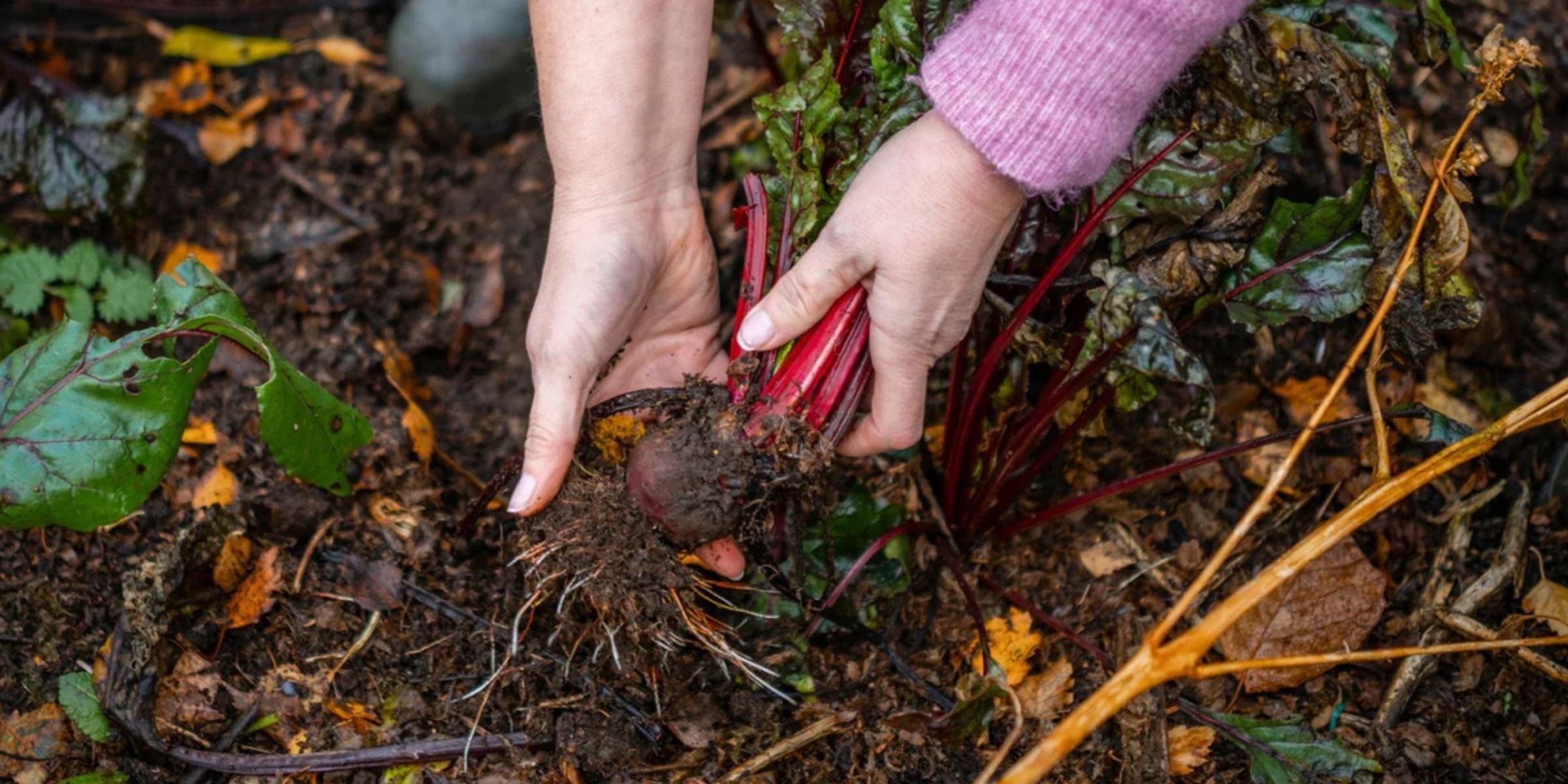Even though menopause is a life stage around half the population will go through, it is still misunderstood and surrounded by negativity and stigma. It’s time to break the menopause taboo and start a conversation around how to best help. Just because it’s a natural part of a woman’s life, it doesn’t mean that she needs to go through it all alone. There are many ways you can support your partner while she moves through menopause.
1. Get informed
The first step is building some knowledge about what is actually happening, so you can better understand what your partner is going through. Menopause is defined as a woman’s final menstrual period - when her ovaries no longer release eggs, and her estrogen levels drop. In Australia, the average age of menopause is 51-52, though it can occur anywhere between 45 and 55, or even earlier due to various medical conditions.1 The time leading up to menopause is known as ‘perimenopause’, when ovarian function gradually declines and the hormones, estrogen and progesterone, begin to shift and fluctuate. This is when various physical and emotional symptoms typically present. Perimenopause can occur months, years or even a decade before menopause (the average is 4 to 6 years).1 Perimenopause symptoms vary greatly from one woman to the next. Around 20% will have no obvious symptoms, 60% will have mild to moderate symptoms and 20% will have severe symptoms that interfere with their quality of life.1 Perimenopausal symptoms may include any of the following:1
| Physical Symptoms | Emotional Symptoms |
| Irregular periods | Irritability or frustration |
| Hot flushes | Feeling anxious |
| Night sweats | Difficulty concentrating |
| Sleeping difficulties | Forgetfulness |
| Sore breasts | Low mood |
| Itchy, crawly or dry skin | Mood swings |
| Fatigue and exhaustion | Feeling as though you can't cope as well as you used to |
| Dry vagina | |
| Loss of libido | |
| Headaches and migraines | |
| Aches and pains | |
| Bloating | |
| Urinary problems | |
| Weight gain caused by a slower metabolism |
Menopause officially occurs when a woman hasn’t had a period or spotting for 12 months. Beyond this stage is known as ‘postmenopause’, when a woman’s reproductive years are officially behind her. During this time, symptoms will typically subside or at least become more mild in severity. However, due to lowered hormone levels, women in postmenopause are at a greater risk of health conditions like osteoporosis and heart problems.2 This is why it’s important to use the transition our of menopause as a great time to refocus on health.
Now you know the menopause basics, here are some practical tips to help your partner navigate through this significant transition (sometimes referred to as “the change of life”).
2. Communication is key
Listen and be supportive, show empathy and sensitivity, allow your partner to talk through their feelings and help you understand their specific symptoms (remember: every journey through menopause is unique). Encourage your partner to tell you what they may need and how you can help.
3. Be patient
Your relationship might be tested at this time but remember this stage of life is temporary. When it comes to sex and intimacy, it’s common for women to have a lowered libido with the changes they experience in hormone levels, along with vaginal dryness and discomfort, lowered mood and fatigue. Keep talking to your partner, be patient and perhaps find some other ways to be affectionate and stay connected.
4. Offer practical support
If your partner is experiencing hot flushes or night sweats, offer a spray bottle or hand fan (better yet, place them on the bedside table) along with a cold pack under her pillow. Use separate bed coverings, and help wash the sheets and remake the bed if a hot flush episode occurs. If her sleep is disrupted, you could suggest doing a meditation together before bed. If she’s feeling low or irritable, encourage her to do something for herself, whether that’s getting a massage, meeting up with a friend or getting out in the garden.
5. Encourage healthy habits together
Lifestyle habits like regular exercise, eating a wholesome diet and reducing caffeine and alcohol consumption can help in managing menopause symptoms. And these are things you can do alongside her. You could go for a regular walk or hike together or attend a yoga class, cut down on your own caffeine and alcohol consumption and help cook nutritious meals. Try to avoid overly spicy foods as these may trigger hot flushes. Consider including phytoestrogen-rich foods to meals, which may help to steady lowering estrogen levels and help with your partner’s menopause symptoms. Phytoestrogen foods include chickpeas and hummus, tofu, edamame, miso and tempeh, fennel, flaxseeds, garlic, sesame seeds and tahini and alfalfa sprouts. Calcium-rich foods are also highly important as estrogen has a protective effect on bones and the decline in estrogen that occurs with menopause can put women at risk of bone problems. Foods high in calcium include milk, yoghurt and cheese, salmon, sardines, dark green leafy vegetables, beans, almonds and almond butter, tofu and figs.
6. Consider plant-based support
Ethical Nutrients Estrovera™ contains an exclusive natural ingredient ERr 731™ (also known as Siberian rhubarb), which has been specifically researched to help women through perimenopause and menopause. Working to relieve 8 common menopause symptoms, it reduces hot flushes, relieves fatigue and supports a healthy libido. Estrovera™ is an option for women looking to manage their menopause symptoms with a plant-derived alternative. Encourage your partner to consult a healthcare professional to ensure Estrovera is the right fit to support her through her menopause journey.
References
- Jean Hailles for women’s health, September 2023, Menopause, viewed 5 September 2023, <https://www.jeanhailes.org.au/health-a-z/menopause/about-menopause>
- Better Health Channel, November 2019, Menopause, viewed 5 September 2023 <https://www.betterhealth.vic.gov.au/health/conditionsandtreatments/menopause>




